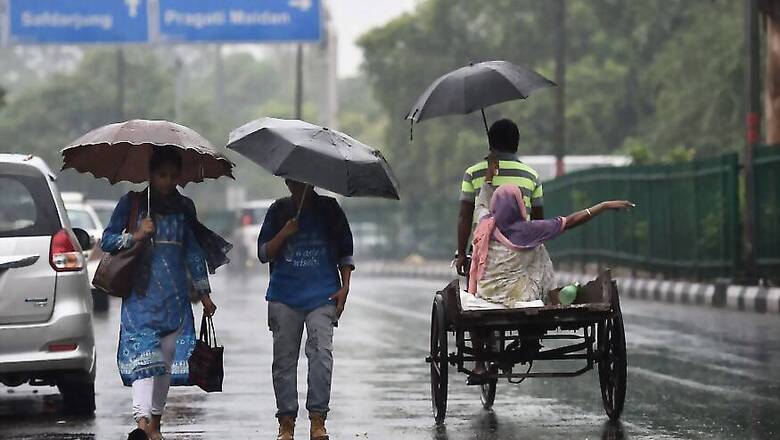
views
New Delhi: Delhi's air quality has been oscillating between good and satisfactory categories for the past one week, making it one of the longest spells of clean air in the national capital this year, authorities said on Friday.
The authorities have attributed increased rainfall with approaching western disturbance as the main reason behind the improvement in air quality.
According to the Centre-run System of Air Quality and Weather Forecasting (SAFAR), the overall air quality index (AQI) of Delhi was 44 on Friday which falls in good category, while the Central Pollution Control Board (CPCB) said the AQI was recorded in satisfactory category at 59.
An AQI between 0 and 50 is considered 'good', 51 and 100 'satisfactory', 101 and 200 'moderate', 201 and 300 'poor', 301 and 400 'very poor', and 401 and 500 'severe'.
The level of PM2.5 (particles in the air with a diameter of less than 2.5 micrometre) was recorded at 44 and the PM10 level was recorded at 21 on Friday, SAFAR said.
The AQI was recorded at 69 on Tuesday, 63 on Wednesday and 75 on Thursday.
Officials said it is the longest spell of clean air experienced by Delhiites this year.
The air quality is predicted to be in good category for the next three days, according to SAFAR.
"Overall air quality of Delhi is in good category. Widespread rain helped to the sudden improvement of the air quality. Increased rainfall activity is likely in association with approaching western disturbance and monsoon low, fairly widespread to widespread rainfall and isolated heavy rainfalls are expecting over the weekend," it added.
According to the CPCB, PM2.5 levels in the national capital dropped by 7.3 percent in 2018 when compared to 2017 and by 14.8 percent over 2016.
Similarly reduction in PM10 levels in 2018 is 8.6 percent over 2017 and 16.5 percent over 2016.


















Comments
0 comment